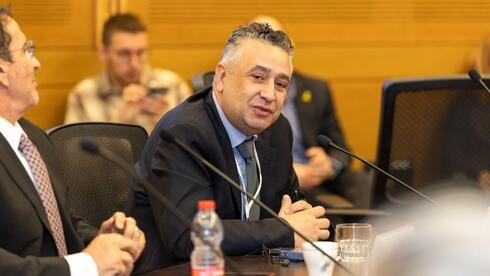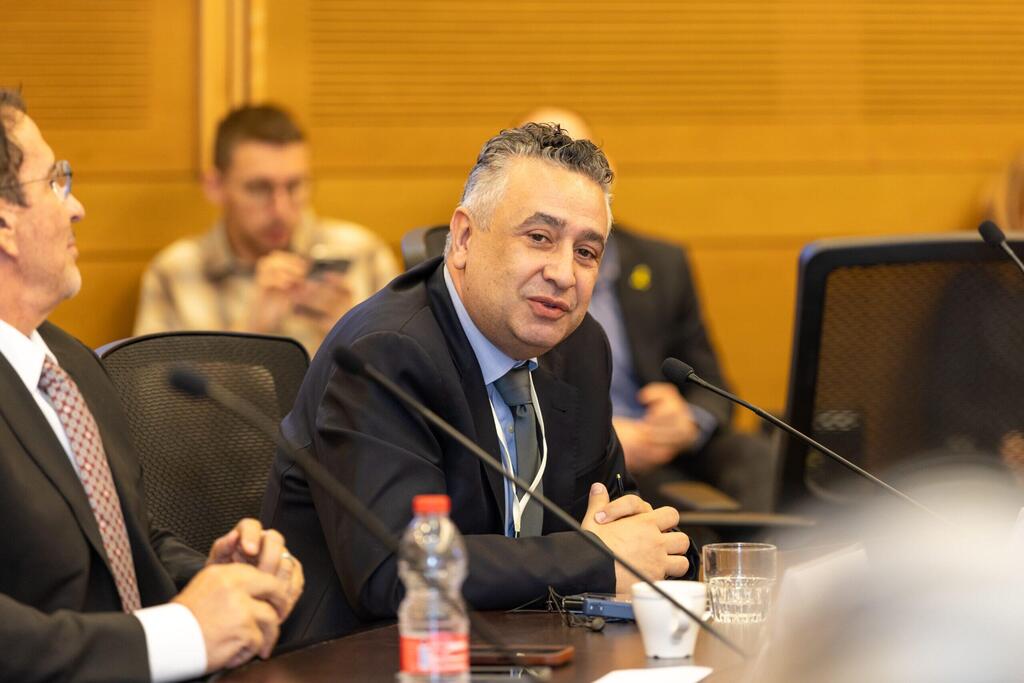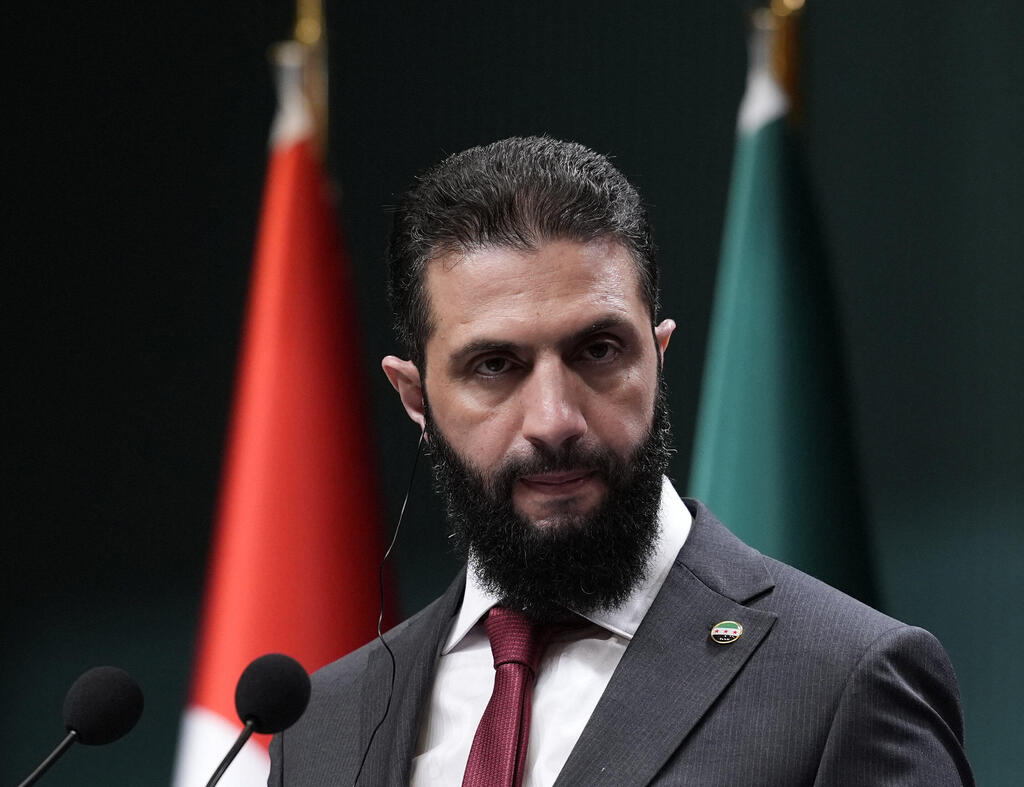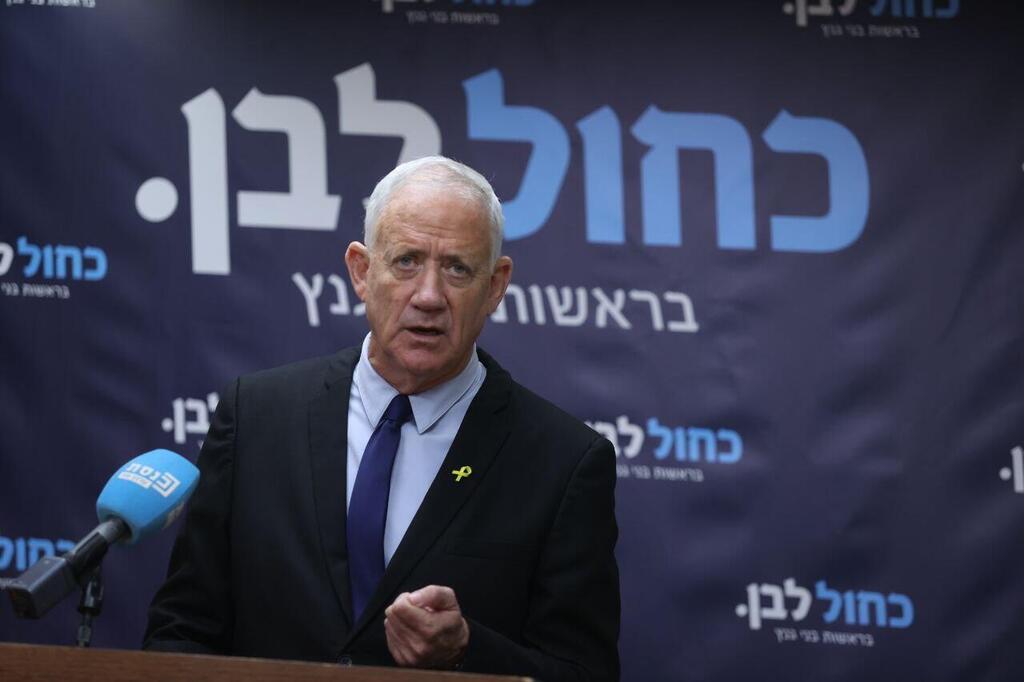Martini described the visit to Israel as an “unprecedented moment for peace” and a “once-in-a-century opportunity” to change the trajectory of Israeli–Arab relations.
A former hospital director in Aleppo and current CEO of the Multifaith Alliance, Martini was one of two Arab civil society figures who spoke to Israeli lawmakers during the inaugural session of the Knesset Caucus for the Advancement of a Regional Security Agreement. Alongside Saudi journalist Abdulaziz al‑Khamis, Martini advocated for a new regional framework based on moderation and mutual understanding.
According to Martini, Syria’s post‑Assad leadership is ready to move in a new direction. “The Syrian leadership is very focused on rebuilding the country and establishing long‑term peace in the region,” he said. “They want to resolve everything through dialogue and diplomacy.”
He said Syria’s devastation over the past decade, with millions displaced, has shaped the new leadership’s vision. “They are looking into having a more stable region, which is going to benefit Syria and the Syrian people.”
The meeting with President Al‑Sharaa included two American religious leaders—one Jewish, one Christian—as well as Martini himself. “I’m Muslim. One was a rabbi, one was a reverend. We were trying to have a discussion with the president and see his views.”
He stressed that Syria’s new leadership sees its future aligned with the United States, Europe and moderate Arab states. “The current Syrian government is totally detached from the Iranian axis,” Martini said. “That’s one of the reasons they were looking toward the United States, Western Europe and the moderate Arab countries as their new allies and partners.”
Martini described his appearance at the Knesset as both emotional and revealing. “It was overwhelming,” he said. “I met so many people, so many members of Knesset from all walks of Israeli political life. That was an interesting eye‑opener.”
He said the invitation offered a rare chance to speak directly to Israelis: “We wanted the Israeli public to hear the voices from the region—from Syria, from Saudi Arabia—to understand where we’re coming from, what we want to see in the future and how we can achieve a better future for both our people.”
Still, he acknowledged the risks: “Doing something for the first time is always overwhelming and has its challenges. But I think we need to be more brave about speaking the truth if we want to move forward.”
Martini also warned that continued Israeli military activity inside Syria could undermine diplomacy. “The nonstop incursions of the Israeli military occupying certain towns and villages in southern Syria, where some Syrians have been killed and wounded—this is really hampering broader peace initiatives.”
The event was organized by the Coalition for Regional Security, a think tank established in 2023 to advance Israeli–Arab cooperation. Its founding partner, Lianne Pollak‑David, said that the moment was carefully designed to be both symbolic and substantive.
4 View gallery
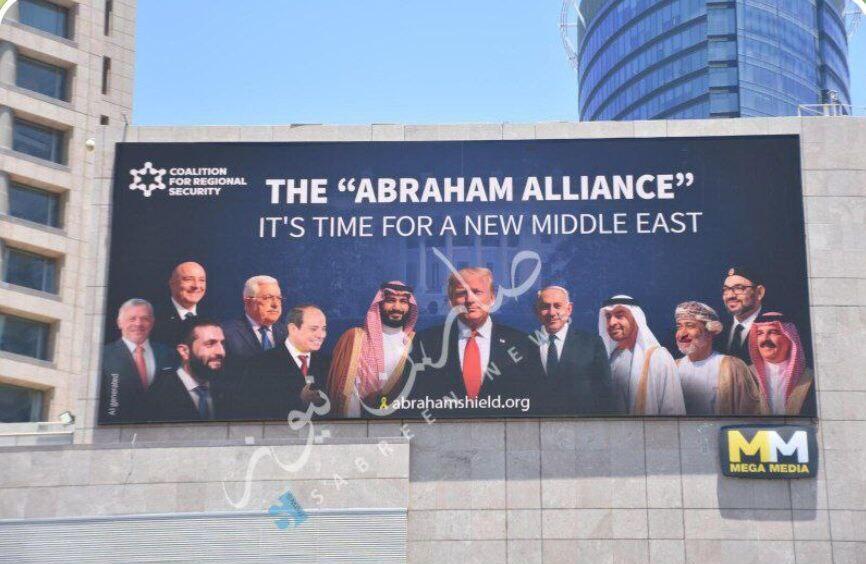

A billboard in Tel Aviv promoting the expansion of the Abraham Accords, featuring Trump, Netanyahu and a host of Arab leaders, including al-Sharaa
She added that the presence of both Syrian and Saudi representatives sent a powerful signal. “These are not just any voices,” she said. “These are courageous voices from two countries that are often perceived as unreachable. Their presence showed that a regional alliance of moderates is not a dream; it’s already taking shape.”
Only opposition members attended the caucus event, including Yair Lapid, Benny Gantz and Gilad Kariv. When asked about the coalition’s absence, Pollak‑David noted: “The coalition was invited. They decided not to show. I believe that for some Knesset members, it simply doesn’t align with their agenda.”
Gilad Kariv, caucus chairman, declared: “What must begin with a comprehensive deal to end the war and bring all our hostages home, can and must continue with courageous agreements that will change the face of the region, establish an alliance of moderates against the axis of Iran and its proxies and bring hope to both peoples in this land.”
Ram Ben Barak, a former Mossad deputy director and co‑chair of the caucus, added: “If we do not turn the military achievements into a diplomatic achievement that will end the war and create a new Middle Eastern political horizon, we will miss a historic opportunity that may not return.”
Opposition leader Yair Lapid emphasized: “Any regional agreement must begin with Egypt taking a 15‑year mandate over Gaza. It’s the least bad option—they ruled there in the past.”
Al‑Khamis, known for his support of regional engagement, also addressed the caucus. “It is unacceptable for people to be imprisoned in Gaza,” he said. “If Israel uses this moment to deepen the occupation and humiliate Gaza, it will lose not only Saudi Arabia, but the entire Arab world.”
Other participants included Nimrod Dweck, CEO of the Darkenu movement, and Hiba Qasas, executive director of the Uniting for a Shared Future coalition. Dweck described the caucus as “a powerful answer to the government’s dangerous policies in the West Bank.” At the same time, Qasas referenced a recent letter from President Mahmoud Abbas outlining five concrete commitments for reform and disarmament in Gaza.
Asked whether he believes it is safe to return to Syria after such a high‑profile visit, Martini replied: “Oh, well, I hope so. This is not my first time visiting Israel. I’ve been public about it before, and until now, it wasn’t an issue when I was going back to Syria.”
A source in the Syrian Foreign Ministry, speaking on condition of anonymity, said that a review of foreign relations is currently underway. “Opening up to Israel is not off the table,” the source said, “but it requires internal consensus and sensitivity to public sentiment.”
The coming weeks will determine whether this rare window of opportunity will be seized or lost once again.
-
The story is written by Rizik Alabi and Gabriel Colodro and reprinted with permission from The Media Line.

